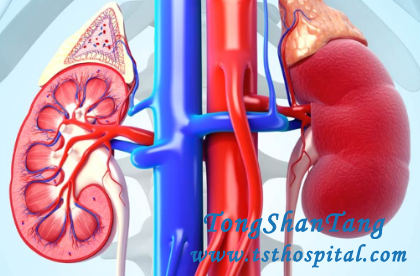 It is no exaggeration to say that almost every patient with chronic renal failure is at risk of acidosis, which in severe cases can be life-threatening.
It is no exaggeration to say that almost every patient with chronic renal failure is at risk of acidosis, which in severe cases can be life-threatening.
Acidosis is commonly expressed by plasma concentration of hydrogen carbonate (HCO3-). The patient's HCO3- decreases and anion space increases, which is the manifestation of acidosis.
In the early stages of renal failure, before stage 4 CKD, decreased reabsorption function of renal tubules is the cause of acidosis.
Under normal conditions, the renal tubule can reabsorb the bicarbonate, keeping the bicarbonate concentration in the blood stable. If the renal tubule is damaged, the bicarbonate is lost. The blood lacks hydrogen carbonate, tends to be acidic, and the PH in the blood decreases.
After stage 4 of renal failure (including stage 4), the renal filtration function is seriously reduced, and the uric acid, phosphoric acid, sulfuric acid and other acidic substances in the body cannot be effectively excreted, and the blood is more acidic.
Clinically, if the hydrocarbonate (carbon dioxide binding) is less than 13mmol/L, it is a serious acidosis, and dialysis becomes a necessary option.
There are many causes of acidosis, which conspire to form the metabolic acidosis of chronic renal failure.
The effects of acidosis on the kidneys
The presence of acidosis can stimulate the endothelial cells and mesangial cells of the renal glomeruli, as well as the medullary loops, proximal convoluted tubules and distal convoluted tubules of the renal tubule accumulation in the patient, further reducing renal function and forming of renal fibrosis.
When acidosis occurs, the protein in the body will be quickly decomposed, resulting in malnutrition and protein deficiency in body. If eating too much protein, it will cause increased acid production in the human body, exacerbating acidosis.
Acidosis caused by chronic kidney failure, in turn, worsens the condition. This is a vicious circle.
In addition, acidosis is also toxic to the nervous, respiratory, digestive, skeletal, cardiovascular, immune and other systems.
Treatment of acidosis
Acidosis patients need an oral alkali agent, and the commonly used one includes sodium bicarbonate, and sodium citrate.
Dialysis is the most direct method for the occurrence of acidosis. However, the common problem is that the patients in stage 2-4 of chronic kidney disease have insufficient correction of acidosis, while the patients in the stage of uremia are overly dependent on dialysis, which can only accelerate renal failure.
If you have any other questions on acidosis and kidney failure, please leave a message below or contact online doctor.
- Email:tsthospital@hotmail.com
- WhatsApp/WeChat/Phone Number:+86 15512139310
- Kidney Treatment Group:
- https://chat.whatsapp.com/2ZCOvebPJdr9QGkyfiqxDz
- Tag: Kidney Failure Kidney Failure Symptoms
- previous:Five Life-Threatening Complications of Kidney Failure
- next:Treatment of Abdominal Distention from Kidney Failure

